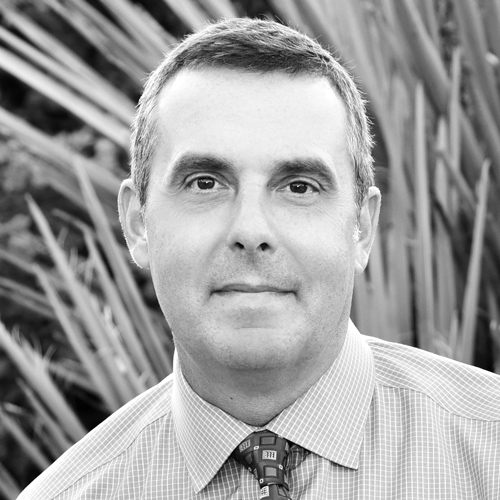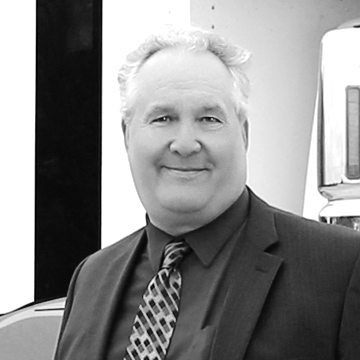Dixie James reached a crossroads during the summer before her sophomore year of college when she participated in a clinical shadowing program as part of her biology/premed major. She quickly discovered that not only was she squeamish about numerous medical procedures, but she also became overly emotional about patients receiving difficult diagnoses or families coping with the loss of their loved ones. It was then she found out that the business side of care might suit her interests better.
Thanks to a suggestion from one of the physicians in the program, she discovered the business side of healthcare and its importance in the delivery of care. It is a path she has followed to this day.
After nine years with Einstein Healthcare Network, where she is now vice president, strategic planning and business development, James is still guided by the important lesson she learned that summer.
“The doctor I was shadowing said that I would get numb to the emotional part of the job over time, but I knew that I didn’t ever want to lose the empathy I feel for patients,” James says. “Since then, I have always maintained my sensitivity to how patients feel in a clinical setting when I am developing strategies for growth or improving operations.”
As she analyzes data and studies trends to make the best strategic decisions, James believes that her colleagues are driven by the same recognition that all of their efforts impact patients when they are at their most vulnerable.

“By and large, people choose the healthcare field because they care about other people,” James says. “Even if the rest of the team doesn’t agree with my recommendations, if we back up and focus on what’s best for the patient, we can almost always find consensus.”
Einstein Healthcare Network presents James with significant strategy and development challenges because it serves two distinctly different markets. Einstein Medical Center, its flagship academic medical center, serves a primarily low-income, uninsured, and underserved patient population. Its other acute care hospitals, however, serve more affluent suburban communities. The disparities between the two require James and her team to be highly creative in tailoring services that will meet each specific community’s needs.
For example, Einstein is in the process of implementing virtual patient visits. For one community, the initiative represents a matter of convenience related to details such as work or childcare schedules. For the other, it is a solution for patients who might not be able to afford transportation or are not physically able to negotiate the challenges presented by mass transit.
“There is usually no one-size-fits-the-entire-network strategy,” James explains. “That’s why it’s so important to always have an individualized mind-set and approach for every challenge and solution. Plus, to provide the same kind of industry-leading care to all parts of the network, you have to get creative about how to do more with less.”
James has learned to leverage both technology and traditional platforms to help Einstein grow, improve operations, and increase positive patient outcomes. In addition to virtual visits, telemonitoring is being deployed to remotely monitor the most at-risk and chronically ill patients.
“I’m OK being the rebel who champions ideas that might not be quite right. To do my job properly, sometimes I have to go out on a limb and to be willing do things differently.”
Although these kinds of solutions are strategic innovations, James knows that sometimes the biggest challenge facing a great idea is finding the right time to execute it. When she first raised the idea of virtual visits several years ago, for instance, market conditions and reimbursement models simply hadn’t evolved enough to provide sufficient support. Even though the necessary technology was available at the time, implementation wasn’t yet financially feasible.
“I’m OK being the rebel who champions ideas that might not be quite right,” James says. “To do my job properly, sometimes I have to go out on a limb and to be willing do things differently. I might borrow or tweak details from someone else’s approach, but to grow and do things more effectively, you prioritize the best ideas, make the best use of resources, and file away the rest for another time.”
As for her most daunting challenge, James points to creating a continuum of care that extends beyond the walls of the Einstein network. That would require a cohesive, collaborative, and holistic network made up of community organizations and other stakeholders committed to improving overall population health.
“We know we can successfully treat most patients who are admitted, but if there isn’t ongoing, coordinated support for needs like food, shelter, psychiatric care, or substance abuse, ultimately they’re going to boomerang back to us,” she says.
Issues of funding, privacy regulations, and the infrastructure needed to support such a network, at least for now, appear to be insurmountable. With the current emphasis on population healthcare and the possibility of future state support, however, she believes it could still be a possibility for the future.
Looking back on the summer before her sophomore year of college, James has never doubted that she made the right decision. “I get to do work that I love and that has a direct impact on patients,” she says. “It gives me a purpose professionally and spiritually, and that makes even the hardest days much easier.”
Healthgrades is dedicated to empowering stronger and more meaningful connections between patients and their healthcare providers. At www.healthgrades.com, we help 30 million consumers a month to find and schedule appointments with their provider of choice. With our scheduling solutions and advanced analytics applications, we help more than 500 hospitals across the country to cultivate new relationships using deep consumer insights, improve patient access, and build customer loyalty. At Healthgrades, better health gets a head start. To learn how Healthgrades can help you reach and engage more patients, visit healthgrades.com/hospitals or call 855.665.9276.


